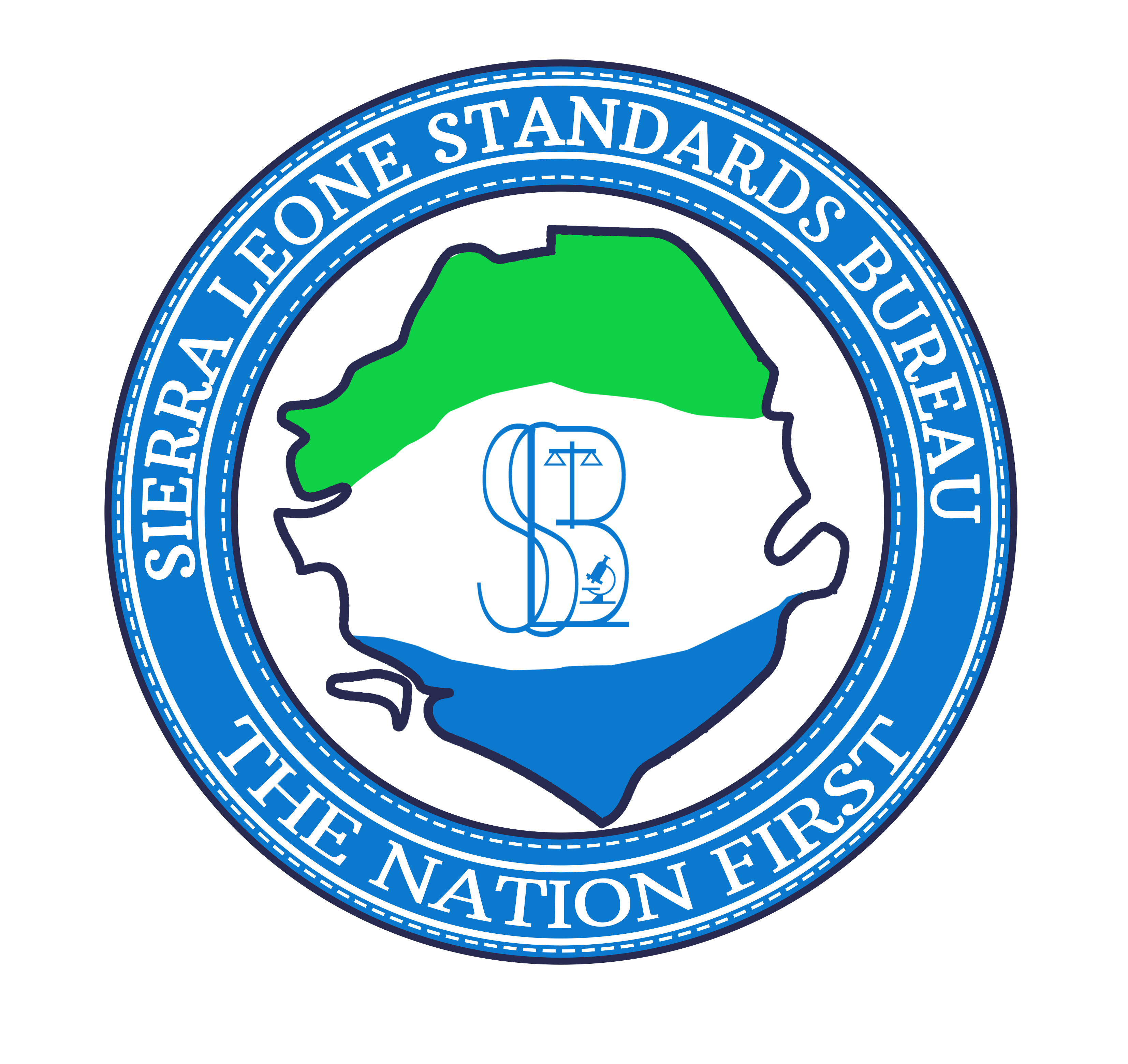FUNCTIONS
Established in January 2000, the Sierra Leone Standards Bureau (SLSB) is the National Statutory Body responsible for the management of the nation’s quality infrastructure embracing the three (3) pillars of Metrology, Standardization and Conformity Assessment (i.e. Testing, Inspection and Certification).
Quality Infrastructure
- A sound quality infrastructure provides the necessary assurance that goods and services are of acceptable quality.
- Again, it promotes the growth of industry, enhances sustainable development and contributes to good public governance.
Thus, the SLSB is:
- The National Standards Body
- A Conformity Assessment Body
- A National Metrology Body
The SLSB is legally mandated to undertake:
- National Standards development and dissemination
- Testing Services
- Inspection Activities
- Product certification scheme
- Calibration, Verification and Inspection of Weights, Measures and Weighing and Measuring Instruments
- Pattern approval of new weighing and measuring instruments
- Destination Inspection of imported High Risk goods
- Promoting Quality Management Systems in Industry
- Advise the Ministry of Trade and Industry on standards and related issues
The services rendered by SLSB are essential for economic growth. This is because Standards bring technological, economic and societal benefits. They help to harmonize technical specifications of products and services making industry more efficient and breaking down barriers to international trade. Conformity to Standards helps reassure consumers that products are safe, efficient, and good for the environment.
For business organizations, Standards are strategic tools and guidelines to help companies tackle some of the most demanding challenges of modern business. They ensure that business operations are as efficient as possible, increase productivity and help companies/institutions to access new markets.
Benefits include:
- Cost savings – Standards help optimize operations and therefore improve the bottom line
- Enhanced customer satisfaction – Standards help improve quality, enhance customer satisfaction and increase sales.
- Access to new markets – Standards help prevent trade barriers and open up global markets.
- Increased market share – Standards help increase productivity and competitive advantage
- Environmental benefits – Standards help reduce negative impacts on the environment.
Expert opinion – Standards are developed by experts. By integrating Standards into national regulation, governments can benefit from the opinion of experts without having to call on their services directly.
Opening up world trade – Standards are international and adopted by many governments. By integrating Standards into national regulation, governments help to ensure that requirements for imports and exports are the same the world over, therefore facilitating the movement of goods, services and technologies from country to country.


